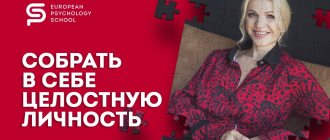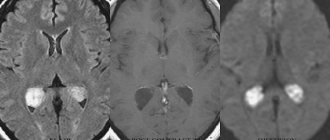What is genius? In a general sense, it represents the extreme degree of a person’s creative, intellectual or other potential. That is, such a special personality and mental constitution in which a person is able to engage in one or another activity with high efficiency and productivity.
As a rule, it is a somewhat universal structure. Allows you to effectively solve a wide range of issues that require innovative thinking. However, such a gifted representative of society can be most productive in only one or two areas, sometimes showing complete helplessness in simple matters. This is a paradoxical phenomenon, but it is not uncommon.
What is the difference between genius and giftedness and talent?
These concepts need to be differentiated. Giftedness is a certain combination of a group of qualities that are present from birth and provide the potential for productive activity in a certain area. These are the so-called makings. If they are not developed, they will remain unfulfilled. Talent is a group of qualities that allow you to achieve results in a particular activity. What is the difference between giftedness? To a more developed degree the qualities necessary for implementation. Plus, there is a quick learning component: all questions related to talent are answered without problems.
Genius represents the highest degree of giftedness and talent. This is an extremely rare occurrence. And even the presence of such a mental constitution and personality traits does not provide a 100% guarantee of success in life. As in other cases, it is necessary to create conditions for the necessary personality traits to develop and bear fruit. The issue of genius is considered by both clinical psychologists and neurophysiologists and psychiatry specialists. For now, not much can be said for sure on this topic.
About the nature of the phenomenon. Whether geniuses are born or made, is it possible to develop this quality?
The concept of genius is so hackneyed that the average person has long not understood what such a phenomenon is. The term is used as a synonym for giftedness and talent, which is not true. There are a lot of myths regarding this phenomenon. Including the origin of extreme giftedness from birth. What can be said about this, what is the nature of genius? There is a group of theories.
- Biological or genetic
It is considered one of the leading ones today. What is its essence? According to the views of a large group of neurophysiologists, the extreme degree of giftedness is determined by the combination of a certain group of genes that are responsible for thought processes and productivity, and the general tone of the body. The theory has the right to life, but it faces a difficult question that indirectly denies it. If genius is determined genetically, why is genius not passed on from parents to children and even after several generations? Perhaps we are talking about random, spontaneous combinations or mutations. There is no evidence or refutation yet. Further scientific research in this area is underway.
- Social
According to it, the basis is the peculiarity of the child’s environment from the moment of his birth. And then the sphere in which there is a potential “darling of nature.” In this case, extreme giftedness is made dependent on the influence of the environment on the individual. How valid is this theory? It's hard to say yet. Most likely, genius is not a trait that can be developed. It is rather innate. But without a doubt, with improper upbringing, suppression of initiative, and lack of adequate workload, there is every chance of destroying a person’s potential and ruining his talents. If we consider the issue in this context, the influence of the social environment on genius is likely.
- Historical
A controversial and rather old theory. According to it, the scale and number of super-gifted people cannot be calculated at the current moment in time. Because many ideas may turn out to be advanced and not understood by others. The environment and historical situation create a gifted individual, and recognition comes later. The theory is not supported by most scientists. Because, as already mentioned, the social environment does not play a primary role. On the other hand, if in former times such a phenomenon really existed, now discoveries for the most part undergo objective verification and can be soberly assessed. The percentage of exceptions is extremely small.
- Psychological
Has an indirect meaning. In fact, supporters of psychological theory equate genius with originality. That is, they talk about the randomness of the development of this phenomenon. Nature goes through various options for qualities, millions of them, and as a result constructs certain psychotypes, personalities and characters endowed with certain properties. With a successful random combination, the result is an extremely beneficial “set” in intellectual or creative terms. There is some truth in this, since, oddly enough, the extreme degree of giftedness was manifested in people born from parents without special intellectual qualities or creative potential, realization. The same applied to the children of thought giants who did not show any special skills, knowledge, or abilities.
- Psychopathological
It is considered the most common today. Although the genetics of genius are not yet clear, scientists generally accept that extreme levels of talent are associated with the development of certain mental disorders in the patient. Genius and schizophrenia are often linked.
Do the schizophrenia gene and genius really go hand in hand?
No, this is nothing more than a myth. Schizophrenia is a disease that destroys the psyche. As a result of a long or aggressive course of the pathological process, the ability to productively use thinking and think from a logical position becomes unrealistic. Therefore, such a seriously ill patient cannot be taken into account. The connection between genius and mental disorders occurs in milder clinical cases. For example, with sluggish forms of schizophrenia, schizoaffective disorders. Much more often, exceptional qualities are observed in persons suffering from all kinds of phobias, unusual sexual disorders (disorders of sexual preference), patients with depression, and bipolar affective psychoses. That is, those disorders that do not disrupt the functioning of the individual.
Special qualities are observed not only in mental illnesses, but also in organic pathologies. For example, hydrocephalus, epilepsy, in some cases after intrauterine hypoxia and others. There are many options.
With all that said, is it true that genius is a disease?
No it is not true. This is a group of personal qualities, mental characteristics and other factors. But not a disease. Although such a complex of beneficial properties can be “bundled” with mental disorders. Not crazy, but easier options.
Finally, is it possible to develop genius?
Scientists say no. This is an innate complex of personality qualities. There is probably a group of genes (not just one gene of genius) that determine such a disposition. However, as can be judged from history, such a gift of nature is not at all necessary to achieve outstanding results in the field of interest.
Where does the word "genius" come from?
Pessimist - what kind of person is this?
In Latin this word will be written as genius, translated as “spirit”. Even in the mythology of ancient Rome, there were spirits - geniuses (personal to humans). It was believed that especially outstanding people had a strong personal spirit. Therefore, since the time of Gaius Julius Caesar (Octavian Augustus), this word has become synonymous with the words “inspiration” and “talent.”
Interpretation of the word
What factors influence the speed of implementation?
As was said earlier, genius can not only be realized faster, but also ruined. In the second, human society has achieved particular success. The social environment is the catalyst or inhibitor that determines the realization of natural talents. What factors have a significant impact?
- Methods of education. Imperative education suppresses initiative. In this case, the person becomes lethargic, weak-willed, and does not show independent interest. By encouraging initiative, it is possible to achieve the realization of the natural qualities of the individual.
- Possibility of free creative realization. That is, sufficient freedom of action, without control from parents and teachers (except for reasonable control to ensure the safety of the child and direct the creative spark in the right direction).
- Amount of free time. The more it is, the more effective the development. Provided that the resource is spent correctly.
- Environment. It influences in a significant way.
- Material component. Satisfying natural basic needs. With a sufficient degree of satisfaction of needs, an adequate environment for self-realization and development arises. Although, sometimes, need also becomes a catalyst for rapid development.
These are the main points. In fact, the speed and quality of development is influenced by even more factors: from health to motivation.
The main signs of a genius
If a person is called a genius, what does this mean is already clear, but how can he be identified among other people?
For your information. According to statistics, there is one recognized genius for every 50 million people. For example, geneticists say that only one potential genius can be born per hundred thousand newborns.
Despite the small percentage of geniuses in society, such a person can be identified by the following parameters:
- a special state of mind combined with innate abilities;
- using intuition;
- perseverance and self-confidence;
- innovative thinking;
- understanding of vocation and its productive implementation in a certain area.
It has been noticed that some of these amazing people focus on one thing in childhood. They may fall behind in other subjects at school or even fail the school curriculum.
Interesting. Albert Einstein was considered a retarded child and did not do well in elementary school. Maxim Gorky did not write school essays at all and completed only two classes.
Innate signs of genius are not enough; they must be identified and developed.
About testing for genius. How to diagnose a person’s originality?
Testing in such a context is very difficult. Especially if the test is carried out on a child. The rudiments cannot always be recognized immediately; sometimes more than one consultation is required. The issue of diagnosis is dealt with by specialists in clinical psychology. The psychologist must have sufficient experience, otherwise the results will be inaccurate or completely false.
There is no single test for genius, since we are talking about an integral quality that combines three characteristic features:
- High level of intelligence.
- The ultimate level of creativity.
- High flexibility and mental agility. Also her activity.
As part of the examination, special events are prescribed.
Oral conversation
Allows you to evaluate the logic of statements and the structure of the subject’s speech. Also direct the conversation in the right direction and lead to certain actions. Provocations are also used to understand how a person gets out of difficult situations. Here, again, the specialist is required to have sufficient experience and impeccable adherence to the rules of formal logic.
Torrens test
In different modifications. As part of this testing, special stimulating graphic material is used: figures, lines. The subject is asked to complement the drawn forms at his own discretion to create complete images or even compositions. A psychologist does the decoding. Upon completion, a final score is assigned. Depending on the result obtained, we can talk about both very low and extremely high creative potential of the individual. Before testing, especially if a child is being tested, you need to carefully explain the rules to avoid misunderstandings and false underestimation of the results.
Intelligence tests
Ravena, Eysenka, other modifications. Of course, taking into account the age of the subject. The questions that are used are divided into categories - from logical (which figure is extra) to mathematical, based on simple calculations. Also verbal, assessing the ability to perform operations with linguistic units. Some tests only use a graphical representation of the material. The use of various tests and questionnaires allows you to obtain the most accurate and unbiased results. In such a situation, errors are practically eliminated.
Observation of the behavior of the subject. Assessing his interests and preferences
Conclusions are drawn based on observations and the specialist’s own understanding. Although there are no formal criteria, the signs of a person’s genius are quite clearly visible.
How does genius manifest itself? Among the features:
- high intelligence - in adulthood, the limit indicating exceptional abilities lies at the level of 145-150 units and above, depending on the individual characteristics of the individual, this number may be more or slightly less;
- the maximum level of creativity is originality of thinking, even in standard situations such people come to paradoxical and non-standard conclusions, which is noticeable when conducting tests;
- well-developed imagination - found in everyone, but at the same time, it does not always allow one to effectively engage in artistic activity in a broad sense; in childhood, imagination is especially noticeable; during diagnosis, this makes the task easier;
- multitasking - the ability to solve several problems at once in parallel, is found not only among geniuses, but for them this quality is organic and does not require special efforts for development or ongoing implementation;
- mental flexibility - the ability to quickly switch from one issue to another, is accompanied by a sufficient level of mental energy, this in turn determines the extreme performance of such people, they rarely get tired and quickly regain their strength, with a willingness to continue working;
- multipotentiality - that is, the development of extraordinary qualities in several areas at once; often extremely gifted people are able to work productively in several areas at once;
- sensitivity - high sensitivity, susceptibility to external factors, stimuli and other factors;
- curiosity.
Such criteria of genius are difficult to identify in one consultation. You need to observe for a certain time to draw conclusions.
X-Men
According to Darold Treffert, who devoted more than 50 years to studying the “disease of geniuses,” in 2015 there were just over three hundred people living on the planet with vivid manifestations of savantism. On the other hand, Finnish scientists counted more than five hundred children with savant syndrome in their country alone.
About half of the savants have autism, while others are diagnosed with congenital abnormalities of brain development (for example, agenesis of the corpus callosum, lesions of the pituitary gland or hypothalamus), Williams syndrome, tuberous sclerosis, and varying degrees of mental retardation. According to individual researchers, every tenth autistic person has signs of savant disease; with other diseases, such a pleasant bonus is received less often: approximately 1:1400–2000 cases in patients with oligophrenia of various etiologies. About thirty cases of acquired savant syndrome have also been described, when extraordinary abilities develop, for example, after severe head trauma, hemorrhagic stroke, or as frontotemporal dementia progresses. The ratio of male to female savants is 4–6:1.
Williams syndrome ("elf face" syndrome) is a congenital malformation that occurs when a portion of the long arm of chromosome 7 is deleted, characterized by supravalvular aortic stenosis, peripheral pulmonary artery stenosis, characteristic facial features, dental defects and infantile hypercalcemia, mental retardation and short stature. Frequency - 1:10,000 newborns.
Antipsychiatry
This trend, which emerged in the 60s in the USA, suggests that the concept of a norm is very relative, since it is not clear who sets it and what it is based on. One of the ardent adherents of this movement said that mental disorder is a myth, an imprint invented and imposed by society. He compares the possibility of the existence of mental illness with the reality of the existence of witches in the old days.
Anti-psychiatrists opposed hospitalization and psychiatric hospitals as such. The problem of mental disorder – society – mental hospitals is quite clearly demonstrated in the work of Ken Kesey “One Flew Over the Cuckoo’s Nest”.
The diversity and variety of symptoms of schizophrenia make it difficult to diagnose. And insufficient knowledge makes it unpredictable, which creates fear among ignorant people.
The disease is difficult to diagnose, for the patient to accept the fact of its existence, and for loved ones to learn to live in harmony with a schizophrenic and providing him with the necessary support.










